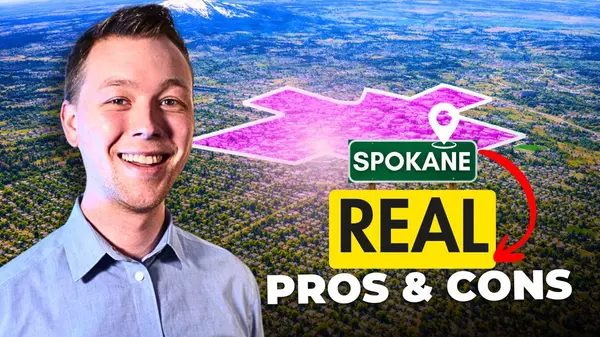Should I Rent or Buy in Today's Housing Market? Here’s How to Decide

Buying a home is a significant milestone and life goal for many individuals. While the common belief is that renting is wasting money, and homeownership is an investment that builds equity, the truth is more nuanced.
Several factors, including personal finances, lifestyle, goals, location, and the economy, come into play when deciding whether it's the right time to buy a home. While some of these factors are within your control, such as your desire to settle in one place, others, like interest rates and home prices, are beyond your influence. If you're uncertain about purchasing a house, it's crucial to carefully consider the following factors before making a decision.

Stability vs. Flexibility
Opting for homeownership involves considering both financial and lifestyle aspects. Even if you can afford to buy a home, it's essential to be ready for a significant commitment. When you purchase a home, it's recommended to stay in it for at least three to five years to build equity.
Why is equity important? It represents the amount you'll receive when you sell your home. Equity is the difference between the home's value and the remaining mortgage amount. Waiting three to five years before moving allows you to pay down your mortgage while the home's value appreciates. A larger difference translates to more profit from the sale.
What does this mean for your lifestyle? If you decide to buy, you should be prepared to stay in the same house for a few years, making homeownership suitable for those looking to establish roots. However, it may not be ideal if you prefer moving whenever your lease ends.
Additionally, buying a home is advisable if you have a stable career and plan to remain in it for a while. Lenders generally require a two-year employment history in the same position to approve a home loan. To ensure timely mortgage payments, it's wise to avoid major career changes during the first couple of years of homeownership.

Personal Finances and Costs
Once you've determined that homeownership aligns with your lifestyle, it's crucial to consider the associated costs. The expenses for buying and renting differ based on the economy, housing market, and location. However, in the first year, buying is typically more expensive than renting. It's important to remember that purchasing a home is an investment, and the money you put into it can be expected to be recovered through outright ownership or future sale.
For a conventional mortgage, you usually need a 20% down payment, along with 3-6% of the purchase price for closing costs. Your monthly expenses will include the mortgage payment (including interest), homeowner's insurance, home maintenance and repairs, and HOA fees if applicable.
When renting, the upfront expenses are relatively lower. Typically, you'll need a deposit equivalent to a few months' rent. Monthly expenses include rent and renter's insurance, which is generally less expensive than homeowner's insurance since it covers belongings rather than the structure itself.
Which option is cheaper? It depends on various factors, such as mortgage rates, housing and rental markets, and the overall economic conditions. When mortgage rates are lower, buying a home can result in a significantly smaller monthly payment compared to renting. However, the cost of entry into homeownership is usually higher.
To determine the right choice for you, it's advisable to consult with an expert real estate agent or lender.

Property Customization
If you desire the freedom to modify and improve your property as you wish, homeownership offers that flexibility. When you own a home, you can paint, renovate, and update according to your preferences. While you'll be responsible for the cost, you have complete control over the outcome. Some structural modifications, such as square footage expansions, may require permits from local authorities. However, the benefits, such as additional space and increased home value, are entirely yours.
On the other hand, making improvements to a rental property requires the landlord's approval, even for minor changes like repainting. Landlords may not be willing to permit tenants to make alterations, and even if they do, they're unlikely to cover the costs. Furthermore, any improvements made to the rental property become the landlord's property, and they benefit from the added value when you move out, without having made the investment themselves.
There are also pros and cons to homeownership versus renting when it comes to repairs and maintenance. As a homeowner, you are fully responsible for maintaining your home, and neglecting maintenance can lead to a loss in value. However, you have control over when and how repairs occur. There's no waiting for a landlord to hire someone for repairs, and you can choose the quality of materials and who performs the work.
When renting, landlords typically bear the responsibility for repairs and maintenance. You won't have to pay for a new water heater or roof repair. However, you may need to accommodate the landlord's schedule. While good landlords strive to complete repairs promptly, relying on someone else's timetable can cause inconvenience and frustration.

The Housing Market
If you've decided to buy a house, the next step is to determine whether it's the right time to do so. Assuming your finances are in order and you are certain about homeownership, evaluate the real estate market in your area and compare it to the rental market.
In recent years, rental prices and home purchase prices have generally increased. However, currently, home purchase prices are starting to decline. This suggests that it could be a favorable time for you to buy.
In conclusion, buying a home requires careful consideration of personal finances, lifestyle choices, costs, property customization preferences, and the state of the housing market. Consulting with professionals in the real estate industry can provide valuable insights and guidance to help you make an informed decision.
Categories
- All Blogs (910)
- Airway Heights (5)
- Audubon/Downriver (4)
- Balboa/South Indian Trail (5)
- Bemiss (3)
- Browne's Addition (3)
- Buying Your Home in Spokane (207)
- Cheney (3)
- Chief Garry Park (3)
- Cliff-Cannon (3)
- Colbert (1)
- Comstock (4)
- Cost of Living in Spokane (1)
- Dishman (3)
- Downtown Spokane (1)
- Driving Tours (1)
- East Central (3)
- Emerson/Garfield (3)
- Five Mile Prairie (5)
- Grandview/Thorpe (3)
- Greenacres (3)
- Hillyard (3)
- Home Improvement (8)
- Home Prices (5)
- Housing Inventory (6)
- Housing Market (133)
- Housing Market Update (2)
- Instagram Videos (2)
- Interest Rates (24)
- Job Market in Spokane (3)
- Know Spokane (608)
- Latah Valley (5)
- Liberty Lake (8)
- Lincoln Heights (4)
- Living in Spokane (2)
- Logan (3)
- Manito-Cannon Hill (3)
- Medical Lake (4)
- Minnehaha (3)
- Moran Prairie (3)
- Mortgage (26)
- Moving out of Spokane (3)
- Moving to Spokane (143)
- Nevada/Lidgerwood (3)
- New Construction Homes in Spokane (1)
- New Construction Opportunities (3)
- North Hill (3)
- North Indian Trail (4)
- Northwest (3)
- Opportunity (3)
- Peaceful Valley (3)
- Riverside (3)
- Rockwood (4)
- Selling Your Spokane Home (163)
- Shiloh Hills (3)
- Southgate (3)
- Spokane Events (447)
- Spokane Neighborhoods (51)
- Spokane Restaurants/Food Places (24)
- Spokane Schools (12)
- Spokane Valley (14)
- Suncrest (1)
- Things to Do in Spokane (460)
- Veradale (3)
- West Central (3)
- West Hills (3)
- Whitman (3)
- Youtube Videos (49)
Recent Posts












